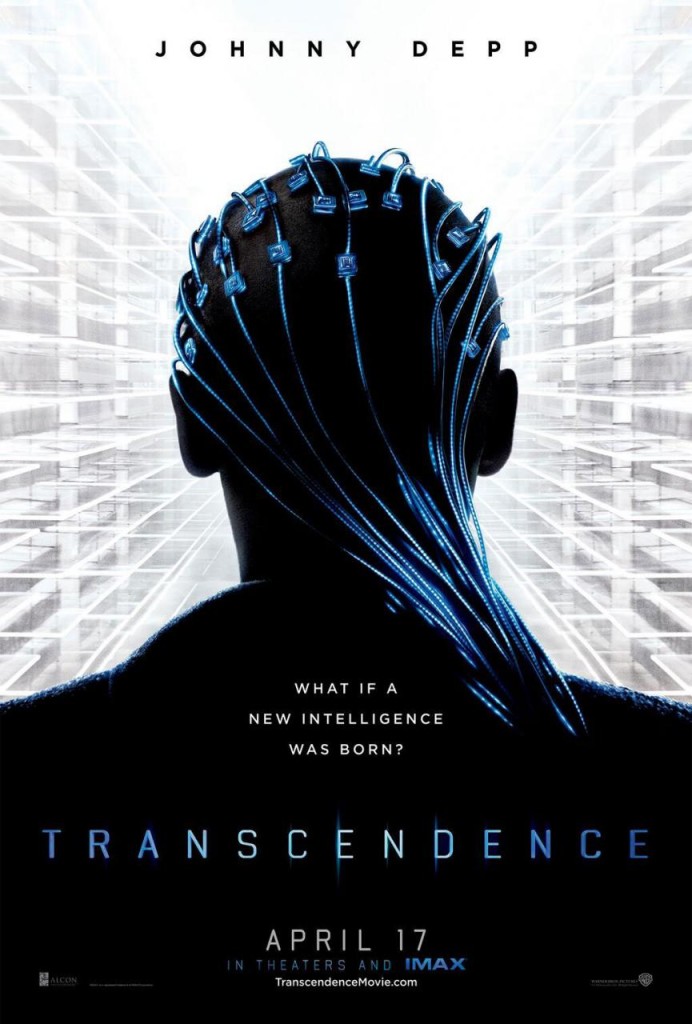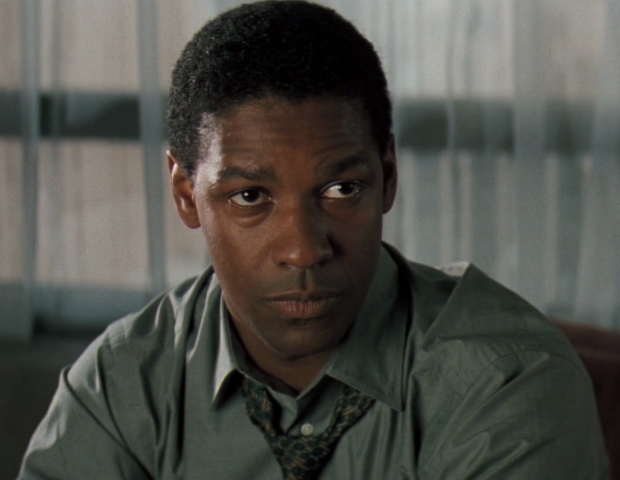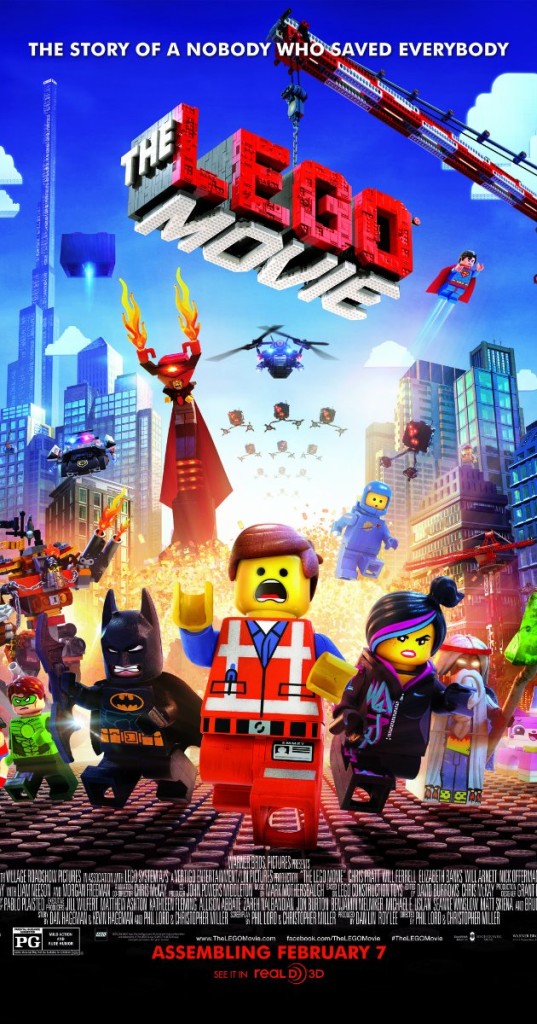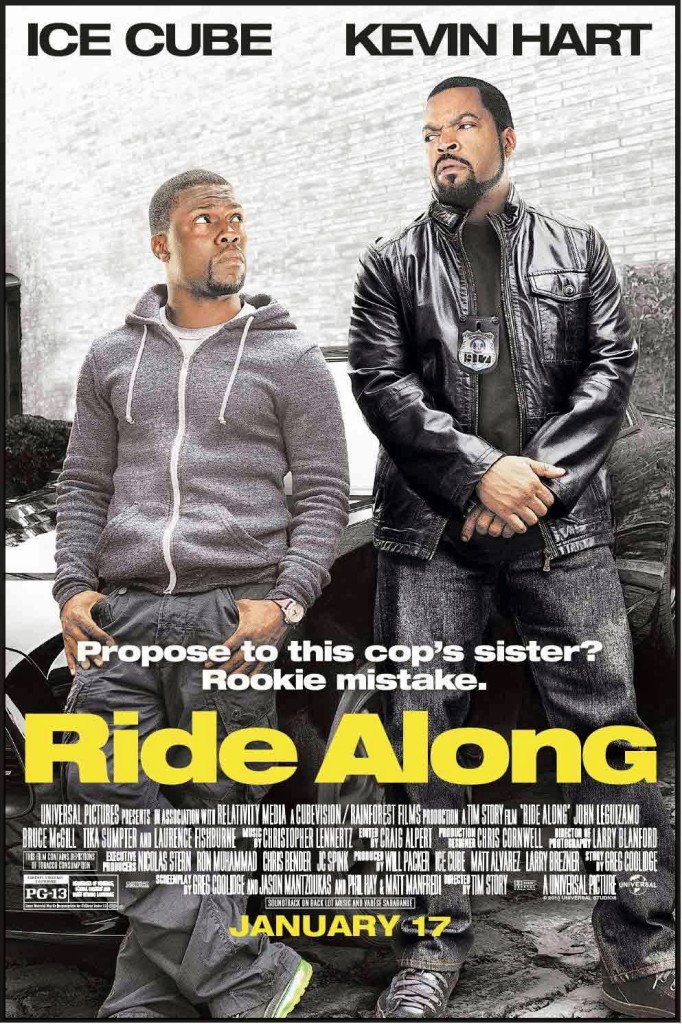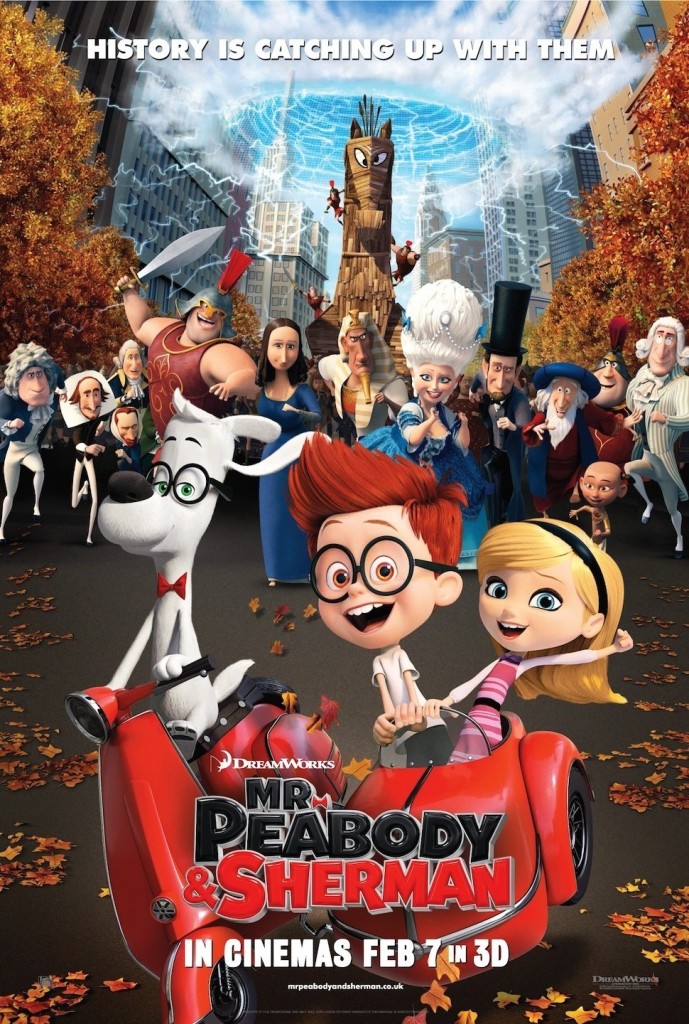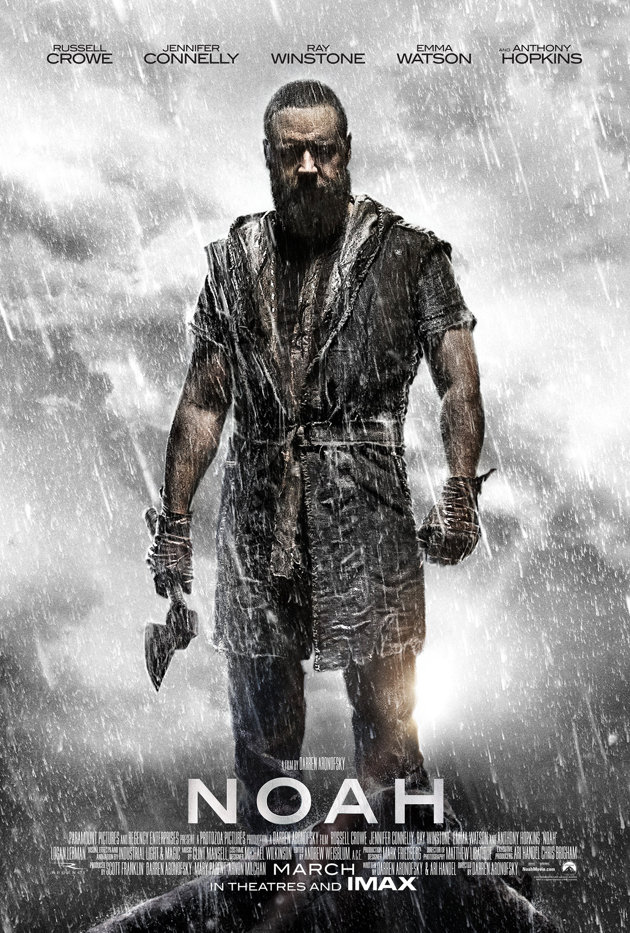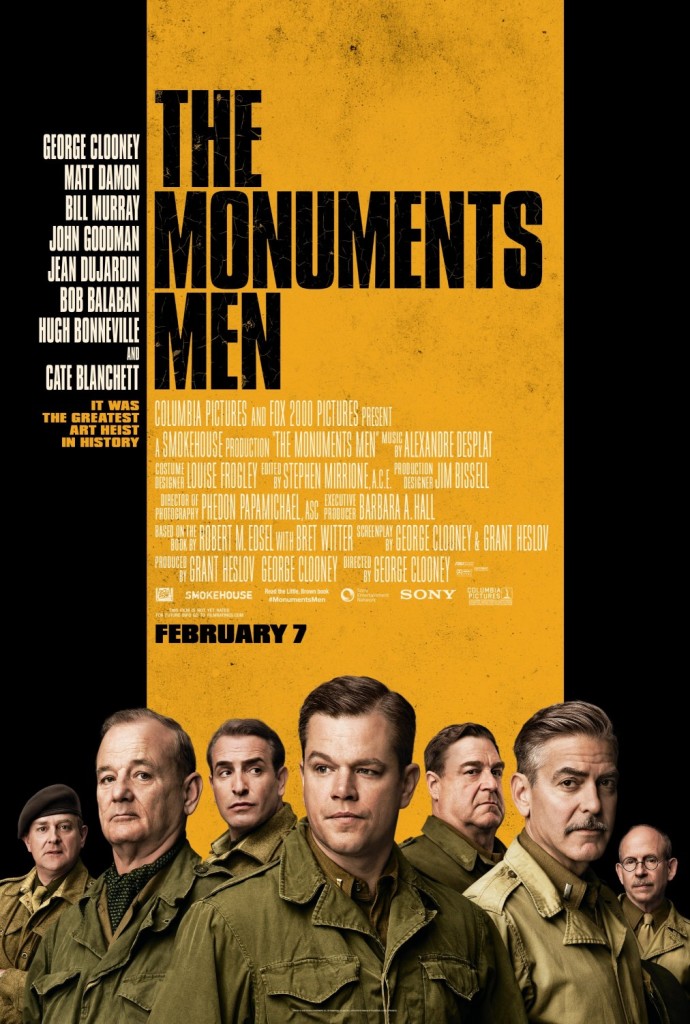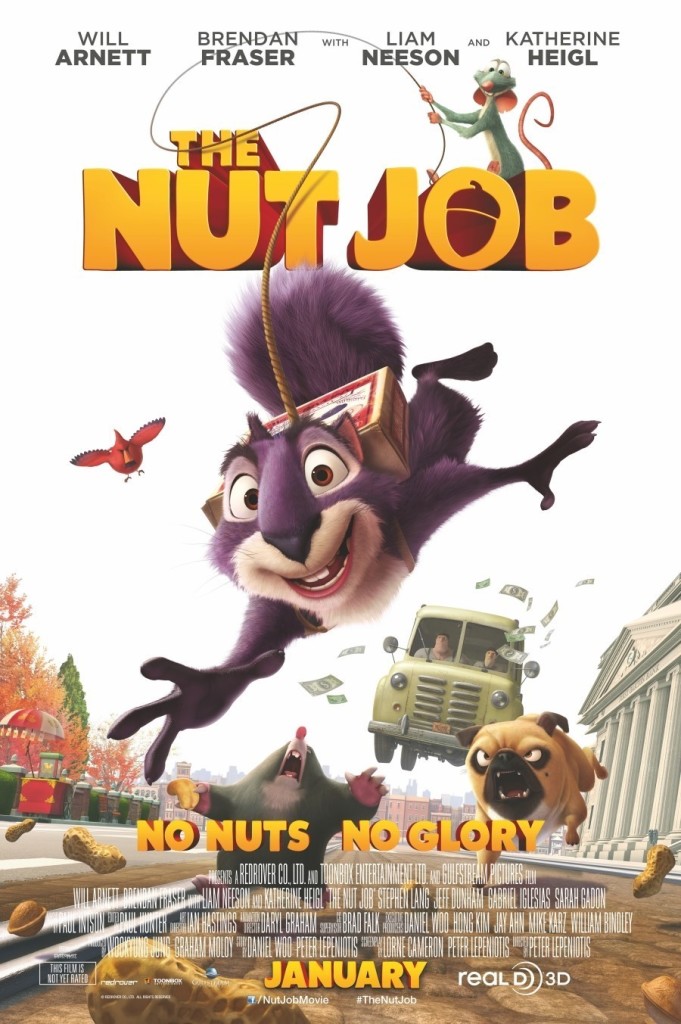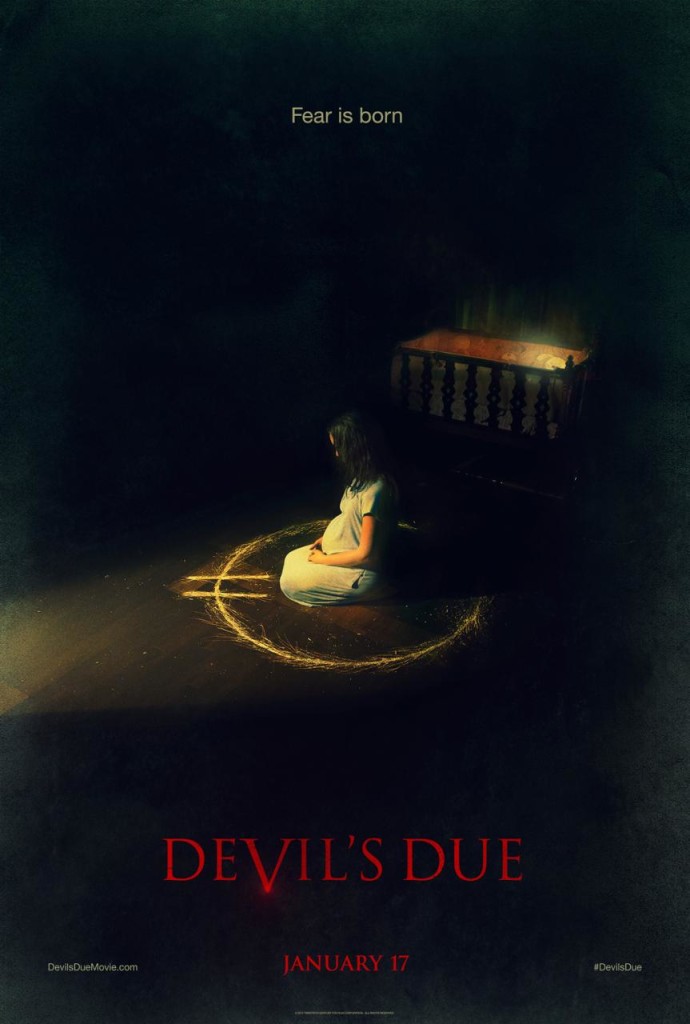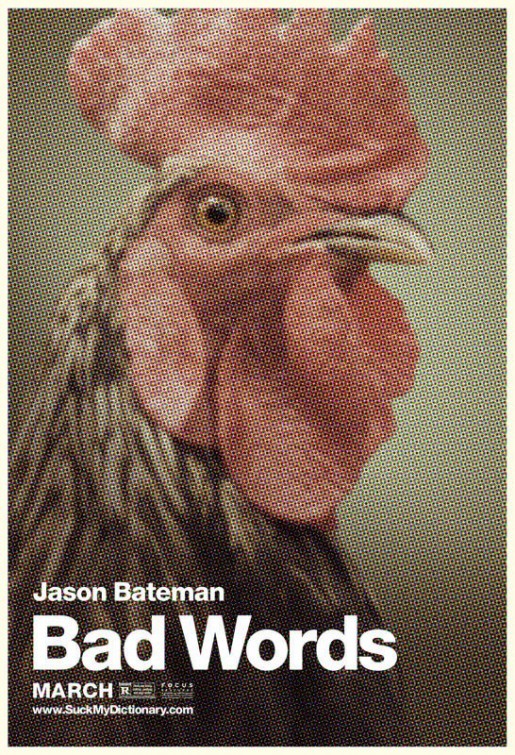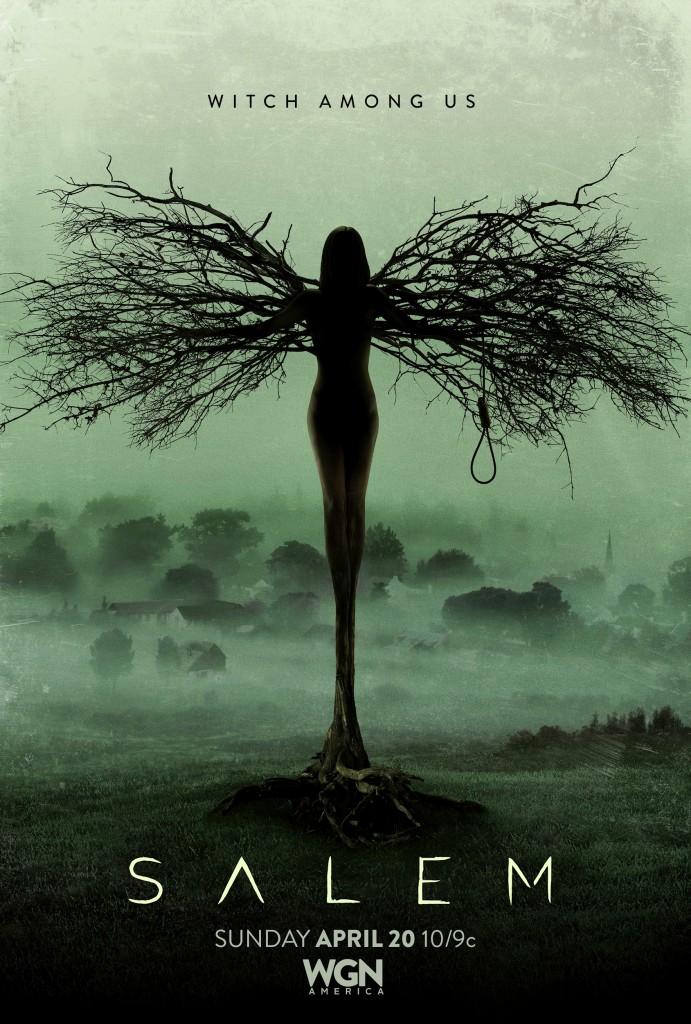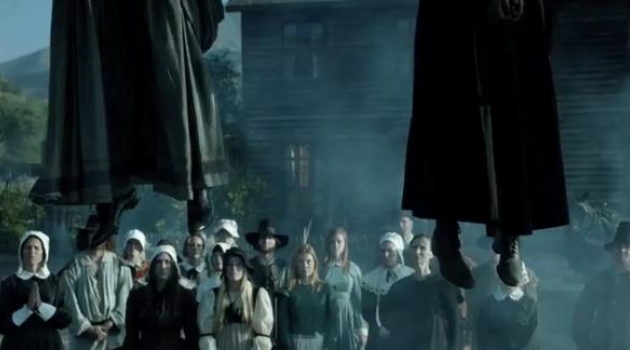Search Results for: F word
Genre: Dark Comedy
Premise: When her step-brother, whom she’s never met before, gets back from rehab, a 16 year-old girl with all sorts of issues engages in a bizarre, sexually dysfunctional friendship with him.
About: Alexander McAulay has found a small level of success selling novels, but this appears to be his first real screenplay (or at least the first one he broke in with). It finished fairly high on last year’s Black List, though it is so messed up I don’t know if anyone’s going to have the balls to buy it.
Writer: Alexander McAulay
Details: 99 pages
Sometimes you read something and you go, “Did I just read that?” Because you can’t believe that you actually did. Like Fatties. I still have nightmares about the amputation fisting scene. But Flower, with its appropriately coy title, may go beyond even that script. I mean, this thing is so messed up I don’t even know where to begin.
I guess you should imagine Flower as “Fatties meets Heathers.” That would give you a small inkling of how delirious it is. The question is, would anyone actually purchase it? Getting on the Black List is great. But it doesn’t always mean a sale. It just gives you the kind of exposure that may lead to a sale.
Personally, I think this was a brilliant move by McAulay. He knew the chances of Flower getting made were slim, but he also knew that if he pushed the envelope and made the reader uncomfortable, that you’d remember his script. And call him in for a meeting. And that’s all you’re really trying to accomplish as a screenwriter. Get as many people as familiar with your work as possible. Because the more people who know you, the more rooms you get into, the more jobs you get.
Oh, so what do I mean when I say this script is crazy? Well it starts with this girl, 16 year-old Erica Vandros, blowing a really creepy old dude in a van. After he finishes, Erica’s best friends, Claudine and Kala, come out of the bushes, informing the man they’ve been taping the whole thing. If he doesn’t give them every cent he’s got, he’s going to jail for a long time. Oh yeah, and this isn’t an isolated incident. They do this ALL THE TIME.
Erica’s saving up money to bail her deadbeat dad out of jail. But her blowjob streak is interrupted when Luke moves in. Luke is her stepdad’s son, the result of a new enough relationship with her mom that she and Luke have never met. Luke is really fat. Like Southwest Airlines “buy two seats” fat. I think Erica describes him as if “Jabba The Hut sat around all day eating lard.”
So how does this relationship begin? Well, what better way to introduce yourself to your new step-brother than asking him if he wants a blowjob! Yes, Erica’s so into blowing guys (preferably guys she doesn’t know) that she actually has a sketch book where she’s drawn all the penises she’s encountered. What a classy lady. Luke is so freaked out by girls in general that he declines, and a baffled Erica eventually learns that the reason for this (and his craziness in general) has something to do with a guy who lives in the house across the street molesting him as a boy.
This angers Erica, who puts Operation Stepbrother Blowjob on hold so she can take Paul (the neighbor in question) down. She and her friends will drug him, take a bunch of sleazy pictures with him, then use those pictures to blackmail him out of everything he owns.
Things don’t go exactly according to plan though. (Spoiler) Molester Dude sort of… dies accidentally during the drugging, which means Erica’s a murderer. So she goes on the run with Luke, deciding to kill two birds with one stone and bail her father out of jail along the way. But what happens instead are a lot of confessions that amount to these two being big fat liars their whole lives. Including that little molestation accusation that led to Paul’s death. Oops.
Like I said, this is a great script to get you noticed. It’s risky. It’s daring. It makes you feel weird reading it. I wrote an article awhile back about not writing “soft” scripts. This is anything but soft. It’s got pointy, stabby edges that are continually jabbing at your insides. I mean, I’m not going to pretend like it’s God’s gift to screenwriting or anything. But I’ve been pretty bored with my reading the last few weeks and this was the first time a script really made me sit up and pay attention. So it had SOMETHING going for it.
And it wasn’t just a string of shocks either. McAulay knows how to construct a story with goals and obstacles and conflict all the way through. I liked that Erica wasn’t just sitting around on her ass being a boring independent movie character all the time. She’s out there actively making money so she can bail out her father. And when Luke enters the equation, Erica’s goal slides over to taking down the molester. That’s what you need in a script – you need to feel like the characters are moving towards something at all times, even if it’s something odd or nontraditional that would only make sense in their particular universe.
Also, if you’re going to get on the Black List like Flower, you need interesting characters – characters readers haven’t seen before. Both Luke and Erica definitely fit this bill. Luke is half-crazy, suicidal, an oxycontin addict and a food addict. And Erica’s an enigma. She’s a blowjob addict. She’s funny. She’s over-the-top. But I think, most importantly, you DON’T FORGET HER. I read so many forgettable female characters in screenplays. I PROMISE you, with this girl’s attitude and the shit that comes out of her mouth, you will NOT forget her.
The only thing that hurt the script was that every now and then, it felt “written.” In other words, when you read something, you could actually see the writer typing it down. It’s typically a bad thing as it means you’re not immersed in the story. I mean, when Erica’s mom kisses her and she yells back, “more tongue, ma! Or I feel gypped!” or when she spots Luke, “Look! Shamu’s found dry land!” or later to Luke, “Don’t you want revenge? Or did he rape all the manhood out of you?” you can smell McAulay grinning deliciously at his little insults.
And then you have things like Luke getting back from rehab, then a scene later, his molester from ten years ago moving into the house across the street – I mean, come on, what are the chances? A plot should be invisible. It must not draw attention to itself. When you cram big plot points together like that, they expose the gears of your story. The reader shouldn’t see the gears of the story. It’s like seeing behind the curtain in Oz.
The funny thing is, it almost worked. I mean, the story and characters were so out there, so weird, and people were always doing and saying things that were so bizarre, why not make it a giant translucent chicken drumstick of crazy? If you’re laughing, you might not care that you can tell the writer’s there in the room with you, typing away.
I don’t know if the masses are ready for Flower though. This thing is offensive at every turn. Who’s going to pony up five million bucks to have a high school girl parade around town offering blow jobs to old men? I guess it could happen. You have to find that really fucked up filmmaker, like a young version of whoever that guy was who directed “KIDS” back in the day. But I’m not holding my breath.
Still, despite its weirdness, I wanted to see what happened. I wanted to get to the end. And the writing was infinitely readable. Enviably sparse and to the point. It was one of the faster 99 pages I’ve ever read recently. I’m going to recommend this only to the weirdos though (like me!). If you’re not the kind of person who waits til you and your friend are alone so you can start cracking the most inappropriate, insensitive jokes in history, you’re probably not going to like this.
[ ] what the hell did I just read?
[ ] wasn’t for me
[x] worth the read
[ ] impressive
[ ] genius
What I learned: Beware the perfectly-timed coincidence. Coincidences are your enemy in screenplays. If things that you need for your story to work just show up out of nowhere at just the right time, the audience will groan and roll their eyes and call you on it. The perfect example is Luke coming back from rehab and, what do you know, the guy who molested him at some faraway camp a decade ago has just moved in directly across the street. It may be EASIER to write that plot point, since you don’t have to put any effort into it, but it’s always better to go the extra mile and make your major plot points coincidence-free.
What I learned 2: While it certainly isn’t a prerequisite, if you can write two really quirky weird characters into your script, your chances of getting on the Black List go up 100 fold. The Black List loves the unique weird offbeat strange characters.
Genre: Sci-fi
Premise: A love story set in a time where a dying scientist is able to upload his consciousness into the internet and, facing its global implications, must fight against the forces who are actively working against the existence of a singularity.
About: Transcendence is one of the few spec scripts that made it to the big screen this year, and a popular one with script readers, including myself. It was Wally Pfister’s directorial debut. Pfister, Christopher Nolan’s long-time cinematographer, was blessed with a strong cast that included Johnny Depp, Rebecca Hall, Morgan Freeman, Cillian Murphy, Kate Mara and Paul Bettany. Despite what looked to be a surefire hit, the film was botched in just about every manner. Critics blasted it (it got a 20% on Rotten Tomatoes) and audiences didn’t come to see it (it made 11 million bucks over the weekend). So today, the question is, why? What happened? Where did things go wrong? I’d like to find out.
Writer: Jack Paglen
Details: 120 minutes/131 pages
Transcendence just made every single one of your jobs as writers a thousand times harder.
You may not know this, but every time a spec-script-turned-film bombs at the box office, it hurts you. Because the studios log that away and say “Yet another reason not to make spec scripts.” Which makes it harder for you, my dear writer friend, to sell a screenplay. I mean, first Draft Day bombs and now this?? We’re not exactly making a strong counter-case here.
The thing is, this should’ve worked. If ever there was a spec that felt right being turned into a movie, it was this one. It had an interesting role for a lead to play, a marketable premise, some intriguing new themes our interconnected planet is dealing with and some inventive set pieces. Black List voters jumped on board. And pretty much everyone I talked to liked the script. So then what went wrong?
For those who don’t know much about the film, here’s an abbreviated plot breakdown:
40-something Will Caster is one of a handful of scientists across the world who is making strides in artificial intelligence. His goal is to reach the “Singularity,” a nerdy term for when computers become as smart as humans. From there, it’s assumed, computers will become exponentially smarter than humans, to the point where they may want to get rid of us.
Which is exactly why a renegade group out there known as the “RIFT” is trying to assassinate Will and others like him. To “save the world.” They do end up shooting Will but not killing him. However, just when he thinks he’s in the clear, Will learns that the bullet was laced with uranium. Will will be dead in weeks from radiation poisoning.
Will’s wife Evelyn, who loves him more than anything, comes up with this wacky idea to use Will’s own research to save him, uploading his brain into a computer. With the help of Will’s reluctant best friend, Max, they’re able to pull this off just before the RIFT find them.
With the entire internet at his hands, Will becomes really powerful, and starts building a super town out in the middle of the desert. While at first Evelyn was excited to have her man back, now she’s kinda freaked out. Will monitors her 24/7, and she’s starting to feel like a kept woman. RIFT joins up with a small department in the FBI to try and take Will and his new city down, but it looks like it’s going to be too little, too late.
 “So let me get this straight Mr. Pfister. You want me to look bored the entire movie?”
“So let me get this straight Mr. Pfister. You want me to look bored the entire movie?”
The first thing I realized about the screen translation of Transcendence was that two of my favorite things about the script were gone. First, Pfister decided to nix the love-triangle between Max, Will, and Evelyn, which was a strange choice. Max’s inner struggle about whether to help Evelyn save her husband even though he secretly loved her, was one of the only aspects of the script that added any layers to the scenes. Without that, everything pretty much played out on the surface.
Then there was the compete lack of any set pieces. In the script, we get this super battle with Will’s self-made super-soldiers (which he creates via nano technology) throwing tanks and doing all these impossible things. In the movie, these “super nano humans” never engaged in any physical attacks. It was beyond bizarre. We built up to three major battle scenes, but nothing actually happened! Right as the nano-soldiers were about to unleash their awesomeness, they’d just… stop.
Now, obviously this could have been due to budgetary reasons. But I suspect it might have actually been a choice. In the script (major spoiler) we find out at the end that, despite RIFT’s insistence otherwise, Will wasn’t trying to rule the world. He was trying to help Evelyn “change the world.” In other words, Will was never bad. He was good! In order for this “shocking” twist to work, I’m guessing our director thought, “Well then Will can’t actually kill anybody! He’s a good guy.” “Aha,” he continued. “That means we can’t have those casualty-heavy set pieces anymore.”
This was a terrible choice, and a trap many writers fall into. In order to make one small aspect of their script work, they sacrifice other bigger parts of the script. In this case, we lost out on these cool set pieces for a lame twist that didn’t make all that much sense anyway.
But the truth is, I don’t think either of these were the reason Transcendence sucked. If you inserted those changes into the movie right now, it would’ve been only marginally better (maybe 35% Rotten Tomatoes instead of 20%). The reason this movie sucked was mainly due to something writers have zero control over: bad directing.
This film was botched on the directing end pretty much from the very first frame, when we get an absolutely unnecessary flash-forward (which was added to the script for God knows what reason) showing a future without internet or something. It did NOTHING for the story except make an already dangerously slow first act five minutes slower.
But here’s the real issue. Pfister has spent the majority of his career being a technician. His job is to capture an image. Directing, on the other hand, is a creative role, requiring thought and inventive choices and imagination and inspiration. Pfister never figured that out, and therefore approached directing like a technician would.
Look at Transcendence: Everything was “technically” okay here. The effects shots were fine. The cinematography was pretty good. The lighting was fine. Actors stood where they were supposed to stand and delivered their lines when they were supposed to deliver them.
But that’s not what a director is supposed to do. A director must elevate the material on the page. And Pfister was only interested in transferring the material from the page. For example, one of the most important things a director must do is get performances out of his actors. There were zero performances in Transcendence. Not a single one. Every single actor in this movie played THE EXACT SAME EMOTION. Which was downtrodden/sad/reserved. I have never seen a movie where every character acted so similarly.
Also, the dangerous thing about a character who is downtrodden/sad/reserved is that if you play that emotion wrong, it comes off as “bored.” And for that reason, every single actor in this movie looked bored. They looked unengaged. It was almost like there was a meeting beforehand to drive home the point that nobody was to emit any emotion during this movie. Ever. Just look sad and deliver your lines in a monotonous voice.
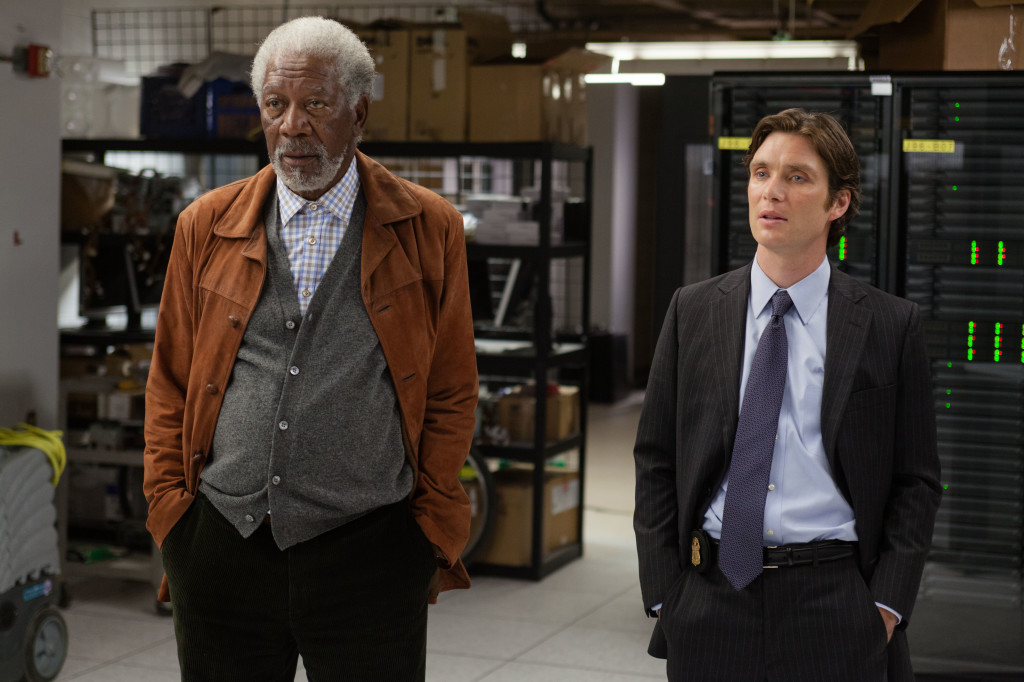 “Hi, I’m Agent Bored.” “And I’m Agent Sad.”
“Hi, I’m Agent Bored.” “And I’m Agent Sad.”
The question was: Was this problem there in the script or just in the movie? It’s been awhile since I read the script, but I remember a more vivid and varied cast. I remember more personality in the characters. And again, I remember all the subtext that played out in that love triangle. With that gone, and everyone pretty much speaking on-the-nose, surface-level sentences to one another, it was hard to find any drama anywhere. This means you had flat performances delivering flat lines inside flat relationships. That right there is Transcendence in a nutshell.
Now, there was one big script mistake that I didn’t notice the first time around that I’m kicking myself for. And it’s a biggie. In fact, it’s one of the most destructive things you can do to your screenplay – a succubus that can destroy your script from the inside-out. Evelyn, our main character, was passive/reactive (aka the old passive protagonist problem – PPP). It’s almost impossible for a script to overcome a passive protagonist, and Transcendence shows why.
EVELYN NEVER DOES ANYTHING! She never instigates anything. She never activates anything. She never goes after anything. When your main character doesn’t do anything other than wait around for other people to make choices or do things, we will get bored with her. We will get annoyed by her. We will build up anger towards her, quietly thinking with each passing minute, “Why aren’t you DOING anything???” And that is exactly what happened here.
In fact, Evelyn is so unengaged that we begin to wonder if she really is the main character. Max, Will’s friend, is the one trying to stop all of this, but even HE’S passive in the way he goes about it, allowing RIFT to come to him and suggest they rescue her. So that’s two out of our three main characters who aren’t doing anything but waiting for others to tell them what to do.
That leaves Will. Will is active, but it’s never clear WHAT he’s actively trying to do. He’s building something… but why? We’re not sure. In the script, where we have action scenes of RIFT attacking Will, we’re distracted enough that we don’t really care that much. But now, with there being virtually no action at all, we’re a lot more aware that Will’s creation doesn’t seem to have a point.
Finally I was reminded, after reading and then watching the film, that seemingly trivial logic issues on the page become INTENSELY MAGNIFIED on the screen. When you read, your brain is more active, as it needs to construct the images of the story you’re reading. When you watch a movie, however, it’s more of a passive experience and because of that, your brain has more time to ask questions, to wonder. Indeed, I couldn’t stop wondering WHY THE HELL the U.S. Army wasn’t trying to get rid of Will’s mini-fortress??? If it was really as dangerous as they were saying, why only send a second-tier local FBI agent to fix the problem??
So what does this all mean? Well, I think the badness that is Transcendence can be blamed equally on the director and the final shooting script. Wally Pfister did not infuse a single scene with life. NOT ONE! And that’s not hyperbole. Go watch this and point out one scene that was inspired. You can’t.
But you can’t discount that script issues played a part in the problem. Like the choice to eliminate the love story, the lack of any real set pieces (which was a strength in the original script), instituting a passive main character, and allowing heavy logic issues to slip through the development phase.
If there’s anything I learned here, it’s that if it feels like a minor problem on the page, it’s going to be a HUGE PROBLEM on the screen. Get it fixed or be embarrassed once you see all those glossy eyes at the premiere.
[x] what the hell did I just watch?
[ ] wasn’t for me
[ ] worth the price of admission
[ ] impressive
[ ] genius
What I learned: Something else I learned here was the importance of CHARACTER VARIATION. Every character here emitted the same downbeat serious demeanor and it absolutely killed the movie. Without variation in character, characters can’t contrast. Without contrast, everyone feels like a clone, a walking copy of one another. Have someone get angry. Have someone be funny. Have someone be crazy. Have someone be awkward. But whatever you do, don’t have everybody be exactly alike.
Get Your Script Reviewed On Scriptshadow!: To submit your script for an Amateur Review, send in a PDF of your script, along with the title, genre, logline, and finally, something interesting about yourself and/or your script that you’d like us to post along with the script if reviewed. Use my submission address please: Carsonreeves3@gmail.com. Remember that your script will be posted. If you’re nervous about the effects of a bad review, feel free to use an alias name and/or title. It’s a good idea to resubmit every couple of weeks so your submission stays near the top.
Genre: Noir/Historical
Premise (from writer): P.I. Sam Marlowe shows novice writer Raymond Chandler the realities of detective work, juggling gangsters, corrupt politicians and movie star Jean Harlow to find out who’s burning farms on the Arroyo Seco Canyon.
Why You Should Read (from writer): This is the real life story from the files of Detective Samuel B. Marlowe.
Writer: L.M. Ransil
Details: 107 pages
I’m going to say something that’s rather embarrassing. I don’t know anything about Raymond Chandler, one of the most famous novelists of all time. I’ve, of course, heard his name. But I had to rely on good old Google to know what he wrote, and just how big time he actually was.
When I realized that Chandler was going to be a selling point of the story, I was worried. There aren’t too many people around with a healthy memory of the 30s, and with this being such a youth-obsessed town, selling stories to a youth-obsessed audience, I wondered if a movie from that time could drum up any interest.
However, as the script goes on, and we start wandering onto the stages of MGM, and into the back yard of Hollywood starlet Jean Harlow, I began to see the potential of “Marlowe” to exploit the L.A. noir sub-genre, which always finds its way into production every few years or so. So, were we gonna get another L.A. Confidential here? Or was this no-ir close to that (Get it? “no-where.” Hey, it’s Friday, people. Loosen up!)?
“Marlowe” is so densely plotted and has so much going on, it’s a little hard to keep up with, but I’ll do my best to summarize. Sam Marlowe is an African-American private investigator in Los Angeles, circa 1937 (the very first, in fact).
When he’s not working, Marlowe usually sits at his office, where he cavorts with his good friend and aspiring actress, Velma, and Velma’s brother, the mentally retarded Freddy. On this particular occasion, he’s also brought home the perpetually wasted Raymond Chandler, a friend and aspiring novelist.
So one day, Freddy comes back stabbed in the gut, on death’s doorstep, a camera in his hand. He mentions something about a fire in “Arroyo Seco” and then dies. Committed to finding his killer, Marlowe goes on the offensive.
Along the way, he finds himself lured in by one of the studios, MGM, who wants him to find their new cash cow, starlet Jean Harlow, who’s recovering from her husband’s (famous director Paul Bern) suicide, by partying her brains to mush.
While going after Harlow, Marlowe runs into Los Angeles bigwigs like the mayor, the district attorney, and uber-gangster Benjamin Siegel, who all, for some odd reason, have taken an interest in his latest exploits. Could this have something to do with the rumor that Harlow’s husband didn’t commit suicide, but was possibly murdered?
Eventually, Marlowe chases down Freddy’s murderers to an old house in Arroyo Seco, where he discovers a conspiracy by the town’s politicians and gangsters to burn everything in sight in order to create a highway between there and L.A. proper, that will make everyone rich.
“Marlowe” has been gaining some heat in other areas of the internet (I know it did well in The Tracking Board competition) and you can immediately see why. The script is dense with “old-world” Los Angeles mythology, a time capsule into 1937 that was so well-researched, you could feel the corrupt cops breathing down your neck.
The thing is, “Marlowe” is so full of story, I began to lose sight of what the story actually was. The script starts out being about Marlowe looking into his friend’s murder. However, it quickly turns into Marlowe needing to find and take care of Jean Harlow. Finally, there’s a plot that involves a mysterious house that Velma is trying to secure so she can bury her brother on the land.
All of these things are interconnected, but most of those connections are kept from us as mysteries to be revealed later. As the second act evolves, it’s clear that Harlow’s storyline is taking precedence, so we jump on board with that. Once that winds down, however, and we head back to Freddy’s murder and the house in Arroyo Seco, I’d forgotten a lot of the intricate details required to connect the overall mystery’s dots.
I guess my question would be, does “Marlowe” have too much plot going on? Are we trying to do too much here? That may come down to who the audience for Marlowe it. If it’s for people steeped in L.A. noir lore who know all these names like the back of their hand, it’s probably a lot easier for them to keep up.
For someone like me, though, who knew nobody, it took a lot more brain-power just to connect one scene with the next, much less understand the overall mystery. I’m still trying to figure out how that house in Arroyo Seco was connected to everything.
I guess in the end, you make a choice as a writer who you want to appease, the people who know everything or the people who know nothing. But for me, personally, I would’ve loved a little more hand-holding. I’m a bit of a simpleton.
In addition to the complexity of the plot, I was surprised at how little Raymond Chandler had to do with it. Since the script starts with him, we’re led to believe he’s going to be a major character. Particularly because Marlowe supposedly inspired Chandler’s greatest works. But Chandler passes out early, is absent for 80 pages, before returning for the finale.
Having said all that, there are definitely some things to celebrate about Marlowe. First, the character work is really strong. You feel everyone here, from the weight of the city’s biggest gangster to the widespread corruption of the most insignificant beat cop. Writing memorable characters is one of the hardest things to do in screenwriting, so whenever I see it done well, I have to give the writer an ovation.
Also, Marlowe is a protagonist actors are going to want to play. A black private detective who stands toe-to-toe with the city’s biggest white personalities in 1937? I could see Denzel Washington chewing this role up.
The dialogue is good too. Ransil understands the nuances of that chip-on-your shoulder back-and-forth a p.i. in 1937 would dish out. “I don’t like your manners,” someone says to Marlowe. “Don’t like’em much either,” he replies. “Let justice do its job, Marlowe,” the D.A. says later. “Justice goes to the highest bidder. Anyone who can’t pay, better go find his own.” There’s a lot of that here, and it’s all pretty darn good.
But you guys know me at this point. I’m all about the story. If the story isn’t at the very least, clear, it’s hard for me to get on board. And that’s my big issue with “Marlowe.” I think there’s too much going on in it. I’d ask Ransil if there’s any way to simplify this.
Do we really even need Chandler? Since he’s only in the last 20 pages? And do we need Freddy? I know it’s his murder that starts this investigation, but it’s clear that the Jean Harlow stuff is the main storyline, overpowering Freddy so much that his murder almost becomes an afterthought.
What if we started with Marlowe getting hired by the studio to find Harlow? That investigation leads him into the Chinatown’esque conspiracy of Arroyo Seco. Then you only have to connect the dots between two elements instead of three. In many ways, it would still be the same story. I think it’s good that Freddy gives Marlowe’s case a more personal slant, but if it’s at the expense of clarity, maybe it isn’t the right way to go.
Then again, this was only my experience with the screenplay. Others may have been able to follow it just fine. That’s the nice thing about the comments section, is that we can pinpoint common problems.
But yeah, I thought “Marlowe” had a lot of good things going for it, and there’s no doubt Ransil is a talented writer. I would just hope that in future drafts, it’s a little easier to follow.
Script link: Marlowe
[ ] what the hell did I just read?
[x] wasn’t for me
[ ] worth the read
[ ] impressive
[ ] genius
What I learned: When you’re writing real-life people into your script, don’t assume that the reader knows who they are, because a lot of readers won’t know who they are. Treat these characters just like you’d treat any characters and have them work on their own right. In other words, a story should never be determined by its “celebrity cameos” but rather by the quality and clarity of the characters as they relate to the story.
We are nearly a third of the way through the year (how did that happen? Just yesterday it was New Years!). While we can’t make any definitive judgments about the 2014 box office (and how it affects us screenwriters) yet, that’s not going to stop me from doing so. I do these write-ups mainly because writers don’t realize how hard it is to a) get a spec purchased, and b) get a spec made into a movie. They think anything they write has a shot at being made into a movie. And I hate to say it, but that’s not the case.
Hollywood is more narrow-minded in what it lets through, and it’s important for you to know which types of movies those are. Also pay attention to the worldwide grosses, as more and more projects are being determined by how they’ll do overseas. And, of course, pay attention to the kinds of movies that audiences are going to in general. These are the movies the public wants to see, so these are the kinds of writers Hollywood is looking for. Now, of course, we haven’t hit the summer yet, when all the big boys come out. And we’re still a ways away from the “serious” movies that come out at the end of the year. But this is still a good representation of what studios are looking to make. Let’s take a look.
1) The LEGO Movie
Writers: Dan Hageman & Kevin Hageman and Phil Lord & Christopher Miller
Genre: Adventure/Animation
Domestic Gross: $251 million
Worldwide Gross: $425 million
Origin: Legos are, of course, a toy, which means the number one movie of 2014, so far, is based on a product. Of note is that they made the movie to span a large demo – not just children – by writing a clever imaginative script.
2) Captain America: The Winter Soldier
Writers: Christopher Markus & Stephen McFeely – concept and story by Ed Brubaker – based on the comic book by Joe Simon and Jack Kirby
Genre: Action
Domestic Gross: $167 million (and counting)
Worldwide Gross: $502 million (and counting)
Origin: Another comic book adaptation and sequel. Captain America is part of the new “universe” approach that studios have gotten jiggy for. This was another solid script that the writers clearly put a lot of time into. One of the reasons Marvel is on top right now is because they don’t phone it in with their scripts.
3) Ride Along (SPEC SCRIPT!)
Writers: Greg Coolidge and Jason Mantzoukas and Phil Hay & Matt Manfredi (story by Greg Coolidge)
Genre: Comedy/Action
Domestic Gross: $134 million
Worldwide Gross: $149 million
Origin: Okay, here’s our top spec script showing of the year. Notice that it combines elements of comedy and action, very spec-friendly elements. While comedies aren’t as big as they used to be, due to their dismal worldwide prospects, this proves that if you want to write a spec, a comedy is a good way to go, and the old “buddy cop” formula is still working.
4) Divergent
Writers: Evan Daugherty and Vanessa Taylor (based on the novel by Veronica Roth)
Genre: Action/Adventure
Domestic Gross: $126 million
Worldwide Gross: $176 million
Origin: Adaptation of a book, specifically a YA novel. Divergent has done well, but not as well as Lionsgate would’ve hoped. This may show that the YA novel craze is losing steam, or at least the female-driven side is (male-centric YA novel adaptations are coming. We’ll see how those do).
5) Mr. Peabody & Sherman
Writers: Jay Ward and Craig Wright and Robert Ben Garant & Thomas Lennon and Michael McCullers
Genre: Animation
Domestic Gross: 105 million
Worldwide Gross: 248 million
Origin: This was adapted from the old Rocky and Bullwinkle show, which makes it classic intellectual property based on a cartoon. Animation is a beast because it can bring in every single demo when done well.
6) 300: Rise of An Empire
Writers: Zack Snyder and Kurt Johnstad (based on the graphic novel by Frank Miller)
Genre: Period/Action
Domestic Gross: $105 million
Worldwide Gross: $328 million
Origin: Intellectual property strikes again. Here we have a sequel to a film based on a graphic novel. I think one of the reasons graphic novels have been so popular lately is that unlike traditional books, executives can actually see the visual style of the movie right there in front of them. So snatch up the rights to cool graphic novels if you can find them!
7) Non-Stop (SPEC SCRIPT!)
Writers: John W. Richardson & Chris Roach and Ryan Engle (story by Richardson and Roach)
Genre: Thriller
Domestic Gross: $90 million
Worldwide Gross: $186 million
Origin: We got another spec script here, this one a straight-forward thriller, which is a great genre to write in if you’re trying to sell a script. I have to admit I didn’t like this at all when I read it, but if you write something a studio can easily market, they’ll pay for the big actor and all of a sudden, you have a film to be reckoned with at the box office.
8) Noah
Writers: Darren Aronofsky & Ari Handel
Genre: Drama/Period/Adventure
Domestic Gross: $86 million (and counting)
Worldwide Gross: 248 million (and counting)
Origin: Here we have an adaptation of something in the public domain. So in that sense, it’s technically a spec script. However, it’s a spec by the director himself, and writer-director projects can’t be seen as specs in the traditional sense. Biblical stories are sort of hot right now, and as a writer told me the other day, the Bible is chock full of good story material.
9) The Monuments Men
Writers: George Clooney & Grant Heslov (based on the book by Robert M. Edsel and Bret Witter)
Genre: Drama/Period/Action
Domestic Gross: $77 million
Worldwide Gross: $153 million
Origin: The Monuments Men was adapted from a book. Projects like these are hard to base future decisions on. If Joe Schmoe would’ve written this, I’m not sure it would’ve gone anywhere. This was Clooney’s love child to begin with, so he was promoting it from the get-go. His amazing cast didn’t hurt either. I’ll also say this about Clooney. Everyone loves him. He’s one of the few guys who seems unaffected by fame and understands how lucky he is. If you’re that kind of person in this business, good things tend to happen to you. Therefore, I’m not surprised that actors jumped at the chance to help him with his passion project.
10) The Nut Job
Writers: Lorne Cameron & Peter Lepeniotis (story by Daniel Woo)
Genre: Animation
Domestic Gross: $63 million
Worldwide Gross: $69 million
Origin: Here we have another animated film, but I want you to note the difference between this one and the two other higher ranked animated films on this list. In those cases, the subject matter catered to both kids and adults (Every adult used to play with legos and Mr. Peabody was based on an old cartoon that adults were familiar with). The Nut Job clearly only caters to kids. And when you do that, no matter how much kids want to see the film, many parents will resist because they know it’s going to be dumbed-down nonsense. So write your animation for kids AND adults, since the adults are the ones with the actual credit card.
–OTHER NOTABLE SPEC SCRIPTS–
28) Devil’s Due (SPEC SCRIPT!)
Writer: Lindsay Devlin
Genre: Found-Footage/Horror
Domestic Gross: $16 million
Worldwide Gross: $33 million
Origin: Found-footage is still the cheapest genre to produce, so this is a nice genre to write in. The tricky thing is that a TON of these are going straight-to-video, and I still haven’t figured out what determines which films go straight-to-videos and which ones get wide releases. It all seems quite arbitrary. I guess all you can do is come up with the coolest most original found-footage concept you can, write a killer script, and hope for the best.
32) Draft Day (SPEC SCRIPT!)
Writers: Scott Rothman & Rajiv Joseph
Genre: Drama/Sports
Domestic Gross: $12 million (and counting)
Worldwide Gross: no international release yet
Origin: This is the truest spec script project here. Draft Day is the script that finished tops on the Black List a couple of years ago. And unlike all these other spec scripts that made the list, it’s not based on a common “spec script” genre. Perhaps that’s why it didn’t do well. Personally, I thought the script was awesome and it was botched on the directing end. They tried to give this that Jerry Maguire sheen. It should’ve been a lot grittier.
35) Bad Words (SPEC SCRIPT!)
Writer: Andrew Dodge
Genre: Comedy
Domestic Gross: $7 million
Worldwide Gross: no international release yet
Origin: This was a good script, but it’s hard for these edgy indie comedies (comedies not built around a mainstream idea) to break out and do well at the box office. However, these do really well on the script-reading circuit as they’re generally more fun to read that those bigger mainstream ideas. And for that reason, a few of them always get made.
SUMMARY
I don’t know about you, but I see a lot of adventure, action, comedy, and thrillers. This is not surprising. People go to the movies to FEEL SOMETHING other than their otherwise boring lives. They want to laugh, they want to be scared, they want a rush. Which is why these genres do so well. Even in the two period pieces that made the top ten (Noah and Monuments) there’s plenty of action. I’m a little disappointed to see only 5 spec scripts in the top 50 (not counting some of these low-grossing indie films). Then again, based on the low-quality of scripts I’ve been reading lately, I guess it makes sense. The problem, I think, is that more and more prod-cos are snatching up intellectual property and hiring writers to write the material, so good writers would rather go for the guaranteed money than risk 8 months on a spec. Then again, that’s good news for all of you. With less people competiting in the spec market, there’s more of an opportunity to write something that stands out and gets noticed.
So, what about you guys? What conclusions did you draw from this list?
Genre: TV Pilot (Horror)
Premise: (from network) Set in the volatile world of 17th century Massachusetts, ‘Salem’ explores what really fueled the town’s infamous witch trials and dares to uncover the dark, supernatural truth hiding behind the veil of this infamous period in American history. In Salem, witches are real, but they are not who or what they seem.
About: When you think about cutting edge television, WGN America probably isn’t the first channel that comes to mind. But that’s only because they’ve never had an original television show to TRY and become cutting edge with! Enter Brannon Braga & Adam Simon’s new pilot, Malice (now known as “Salem”). You might have heard Braga’s name before. He’s made many geeks happy writing on shows like 24, Star Trek: The Next Generation, and the short lived but cool Flashforward. Co-writer Adam Simon, who’s been writing for over 30 years (his first credit was 1990’s “Brain Dead”) is best known for writing the 2009 film, “The Haunting in Connecticut.” Salem debuts this Sunday.
Writers: Brannon Braga & Adam Simon
Details: 61 pages (May 2, 2013 draft)
Only two more episodes left of Breaking Bad. I’m trying to extend them out as long as possible because I don’t want it to be over. After that, I’m not sure where I’ll head on the TV landscape. I watched one season of Mad Men, which I liked but didn’t love. I was thinking of getting back into it but people don’t seem to be too excited about it anymore.
I liked The Walking Dead, but also left off somewhere in Season 2. That’s probably the leading contender since the show only seems to be getting bigger and bigger. There’s also Game of Thrones. I watched 5 episodes of that and, I’ll be honest, became pretty impatient with the format (lots of talk talk talk talk talk scenes, which would be fine… if your story didn’t occur in a land of dragons and blue people). It seems like it’s a big universe to set up though, and appears to be the show with the biggest number of payoffs (I feel like every month I’m reading about another huge shocker on the show). So maybe I’ll hitch a ride on a dragon and become a Throner (is that what you call yourselves?). What do you guys think I should watch?
Maybe Salem can become my new watch-fest. Yeah, it’s on WGN America, which has never had an original show before, but here’s how I see it. If you’re the first ever show on a network, they’re going to let you go nuts. These execs know that the way you get noticed in TV these days isn’t to do what everyone else is doing. It’s to do something different. So let’s see what kind of show we’re gonna get.
Although the writers never tell us what year it is (tsk tsk writers), I did some online research to find out that the Salem Witch Trials occurred in the 1690s, in Salem, Massachusetts. When your reader has to do your research for you, that usually makes said reader angry.
After getting over that, I was introduced to our hero, John Alden. 16 year old Alden is in love with 16 year old Mary, but unfortunately has to head off to war. That’s one of the great story options you have whenever you’re writing a period piece. You can always write in some war that your hero has to go off to.
This, of course, means your hero will come back, older and wiser, to a place that has changed a lot, which is exactly what’s happened to Salem. Alden is now 27, thought to be a casualty of war, but pops back in to his old haunt, only to find three bodies hanging just outside the town. Apparently, since he left, his town has been overrun by witches. They’ve even brought over an English heavyweight to get rid of them, a witch-expert by the name of Cotton Mather.
Alden doesn’t believe in witchcraft, and yells at anyone who tells him otherwise. All he cares about is finding Mary again. But that turns into an unwanted surprise. Mary has gone off and married Old Man Sibley, a guy Alden and Mary used to despise as children.
The good news is she clearly still holds a candle for Alden. So we’re hoping these two are going to make it happen. Excccccc-cept we learn that Mary’s holding a little secret from her former lover. Turns out Mary’s a witch. She’s so evil, in fact, that she’s cast a spell on her husband so that he’s a prisoner in his own body, a slobbering vegetable.
Eventually, Alden comes to realize that maybe this witchcraft stuff isn’t so ridiculous after all, and goes to Cotton to see how he can help stop them. Cotton tells him this won’t be as simple as a few hangings. This is going to be a long drawn out war. A war that the witches will do anything to win.
Salem was pretty good. I noticed something immediately that I didn’t see from yesterday’s film. If you read that review, I commented that, in horror, you need at least one super memorable scene, something that freaks people out, the kind of thing you can imagine people talking about afterwards.
Remember, in this day and age, with social media and the good old fashioned internet, word of mouth is as powerful as ever. If you can come up with something that chills people, freaks them out, or unnerves them, everyone’s going to be talking about it, and that means more people are going to watch your movie (or your show).
Oculus didn’t have a single scene like that. Salem had three. The first was when Mary, as a pregnant 16 year old, has an abortion, with her servant literally reaching her hand inside her and pulling out the fetus. It was terribly uncomfortable. But it was MEMORABLE.
Next, there’s a scene where a young teenaged girl who is thought to be a witch is tied down and shaved. Every single inch of her is shaved, and one of the men watching this finds himself getting inadvertently aroused. It’s disgusting and sick. But it’s MEMORABLE.
Finally, there’s a huge orgy that occurs with all the witches in the forest, wearing animal heads, and covered in a strange moss-like grimy substance that seems to enhance all the slipping and sliding and pleasure for everyone involved. It’s disarming. But it’s MEMORABLE.
If you’re going to do horror these days, you have to push the envelope a little bit. You have to freak us out. It’s almost like you want whoever reads the script to say, “Are they really going to film this?” That’s when you know you’re pushing the envelope. Salem had that.
There’s something else I’m catching on to in a lot of these pilots I’m reading. There’s usually a character who starts out one way and ends up another by the end of the pilot. I’m not talking about a character overcoming his flaw, like you’d see in a movie (a man who’s selfish learns to be selfless), but rather their beliefs change or our perceptions of them change because of new information.
So here we have Alden, who doesn’t believe in witches. But by the end, he realizes they’re real. There’s Cotton, who we see as bad since he’s killing witches, when we know there are no such thing as witches. But then we learn that witches are real, and all of a sudden, Cotton becomes a guy fighting a just cause. Then there’s Mary. She starts out as the perfect little princess of our story, but then turns out to be a witch.
So when you’re writing these pilots, make sure characters are changing (or our perception of them is changing) during the course of the story.
Finally, probably the hardest thing to do with a pilot like this (something steeped in history and lore) is to pack all that mythology in there. It has to feel like its bursting with possibilities. Think of it like a dinner. Too many amateur pilots I read feel like they ate a couple of sushi rolls and a piece of celery. Your pilot should feel like a five-course Thanksgiving meal. Like its belly is full – that it can’t even eat one more mint. Braga and Simon clearly did a great job researching and filling this world up as there arose details around every corner. It reminded me a lot of Travis Beachem’s “Killing on Carnival Row” in that sense.
Unfortunately, whenever you’re doing a show like this, you’re only as good as your budget. Once Upon A Time had big ambitions but its budget made it look like it was 1982 again. So I don’t know if WGN America will be able to show off this rich complex period world Braga and Simon have created. But if they do it justice, they should have a good show on their hands.
[ ] what the hell did I just read?
[ ] wasn’t for me
[x] worth the read
[ ] impressive
[ ] genius
What I learned: Don’t be afraid to make one of your main characters a “bad guy.” I think as writers, we often want to protect our characters. Particularly our main characters. We want them to be good and just. But Salem taught me that it’s usually more interesting if you make one of those main characters “bad.” I thought Mary was going to be a typical unattainable romantic interest as she had married the town leader while Alden was gone. That might’ve worked out okay. When we found out Mary was a witch though, now her character takes on a whole new meaning and is far more fascinating.



